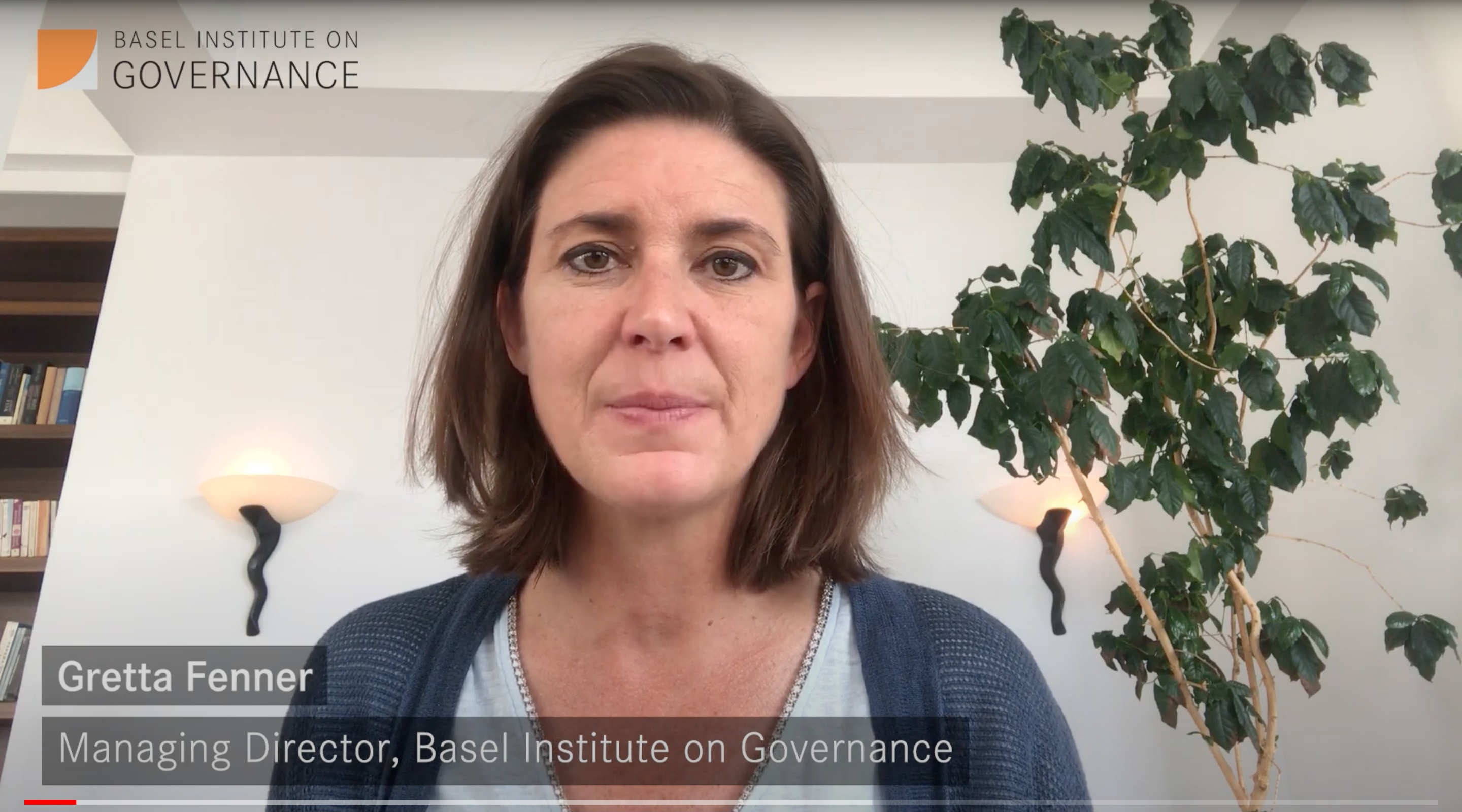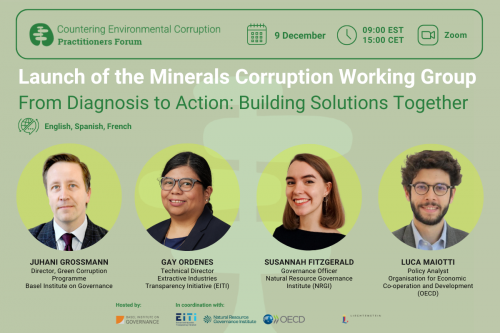Gretta Fenner's address at the UNGASS 2021 plenary session

The following statement by the Basel Institute's Managing Director, Gretta Fenner, was aired at the Special Session of the UN General Assembly against Corruption on 4 June 2021. Watch the video here.
Excellencies, Ladies and Gentlemen,
I thank you for the opportunity to deliver a short statement on behalf of the Basel Institute on Governance.
We welcome the political declaration as a text that provides useful guidance. In particular, we welcome those parts of the text that go beyond previously agreed language, many of which reflect the recommendations that our organisation has made in the context of the consultation process.
Among those, we in particular welcome that paragraph 11 calls upon member states to go beyond the minimum in relation to criminalisation, with a special reference to illicit enrichment, and the paragraphs that encourage states to adopt regimes for both conviction and non-conviction based confiscation.
We are encouraged that the political declaration recognises that states do not yet live up to their commitment to afford each other the widest measure of cooperation when it comes to investigating corruption and recovering stolen assets. In many countries international cooperation remains burdened by unnecessary bureaucracy and sometimes procedural law that would appear to be biased in favour of the defence.
We are also encouraged that member states in paragraph 6 have endorsed the notion of Collective Action as an important emerging norm in corruption prevention.
Finally, we are gratified that the declaration refers strongly to the importance of independent law enforcement and the critical role played by non-state actors.
The gist of this document gives thus reason for hope. But the reality is that on most days, the fight against corruption still feels like a very steep uphill battle. The levels of corruption remain incredibly high, and not a single country is spared.
Of course in parts this is the consequence of positive developments. The media and civil society as well as bolder law enforcement action have helped us to see corruption better, and to understand its consequences better. More people are upset about it.
And we should celebrate these successes, and in particular the many courageous individuals, in law enforcement, in the media and ordinary people who resist, who stand up and protest; many of them at great personal sacrifice.
But corruption is a very resilient and adaptive disease. We are no longer (only) dealing with the kind of corruption that involves stealing from state coffers or paying someone off. This means purely legal and technical solutions are just not enough. We must understand the political economy of corruption, and we must invest in education so that still more people are able to see through the corruption fog.
Second, corruption has become even more globalised. It is a spiderweb connecting politicians and businesses regardless of political colour or nationality, aided by nifty middlemen and the still many blind spots on the world map.
This stands in stark contrast with the increasing break-down of global solidarity and governance, marked by misguided references to national sovereignty and masked by the excuse of bureaucracy. It makes it virtually impossible for law enforcement to stand a chance. The criminals are laughing; we make it so easy for them.
So we must ask more of you, and you must ask more of each other.
First, we ask that you truly endorse the strong language encouraging countries to go beyond the mere minimum. Don’t be held back because others may not go as far as you want to. Show true leadership, not comparative leadership.
Second, please, for once, be ready to be fully accountable. For the fight against corruption to succeed we need a lot, but what we don’t need is another political statement that is not followed through. So I call upon you all to allow for full and public scrutiny of what you will do to implement the commitments made today.
Those who risk their lives to fight corruption, those who lose their lives because of corruption, every day, in every corner of the world, they deserve that.
I thank you.




